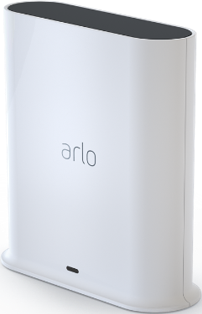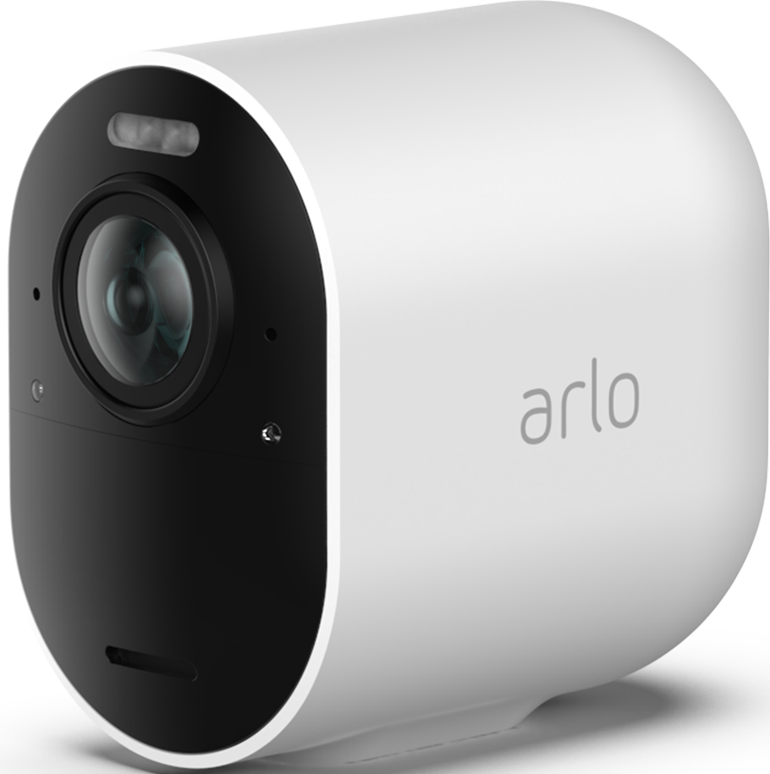This topic has been closed to new posts due to inactivity. We hope you'll join the conversation by posting to an open topic or starting a new one.
- Subscribe to RSS Feed
- Mark Topic as New
- Mark Topic as Read
- Float this Topic for Current User
- Bookmark
- Subscribe
- Printer Friendly Page
- Mark as New
- Bookmark
- Subscribe
- Mute
- Subscribe to RSS Feed
- Permalink
- Report Inappropriate Content
While I have read that they need to run off the smart station WiFi, this is a deal breaker as adding another network layer increases the management cost and security problems. I respect that Arlo makes great cameras, however for security policy management and network performance tuning, it does not makes sense to add Another network layer just for the cameras, as the cost increase makes other cameras systems become a lot more reasonable. I could appreciate any advice on this as I really would like to use this system.
- Mark as New
- Bookmark
- Subscribe
- Mute
- Subscribe to RSS Feed
- Permalink
- Report Inappropriate Content
@Bassemkudsi wrote:
Just placed an order for an Arlo Ultra kit that will run on a ubiquiti network for wired and WiFi on a property. Can the Arlo ultra cameras run off an enterprise network ?
The base station connects to wired ethernet, and the cameras connect to a closed wifi network hosted by the base. So the cameras won't connect to your ubiquiti wifi.
- Mark as New
- Bookmark
- Subscribe
- Mute
- Subscribe to RSS Feed
- Permalink
- Report Inappropriate Content
Is there a road map at Arlo to allow the cameras to link up to an existing network, as I am open to making the investment in the hardware if the solution will include more flexibility ?
Some of my concerns include having to allow exceptions with Next Generation firewall systems, For example; I am using Watchguard whereby Deep packet inspection along with white listing Arlo traffic, without really knowing what's happening creates potential vulnerabilities another security layer to asses if it is worth the savings.
Thanks Stephen.
- Mark as New
- Bookmark
- Subscribe
- Mute
- Subscribe to RSS Feed
- Permalink
- Report Inappropriate Content
@Bassemkudsi wrote:
Is there a road map at Arlo to allow the cameras to link up to an existing network, as I am open to making the investment in the hardware if the solution will include more flexibility ?
Arlo would have to answer the road map question.
Though there are some existing cameras that can connect to your existing Wifi - the two Arlo Q cameras, the Arlo Baby and the Video Doorbell. The doorbell (newest of the three) can connect to either your enterprise WiFi or a base.
- Mark as New
- Bookmark
- Subscribe
- Mute
- Subscribe to RSS Feed
- Permalink
- Report Inappropriate Content
Thank you Stephen;
This is a clear answer, while I really like the Arlo solution with its battery and solar charging options, Network and Video security need to work together to deliver robust security, that is visible to pro users when needed.
I guess its a pass.
- Mark as New
- Bookmark
- Subscribe
- Mute
- Subscribe to RSS Feed
- Permalink
- Report Inappropriate Content
@Bassemkudsi wrote:
Is there a road map at Arlo to allow the cameras to link up to an existing network, as I am open to making the investment in the hardware if the solution will include more flexibility ?
Does this existing network have any wifi extenders or other stuff that has LAN ports?
You do not need to plug a hub directly into a router. You can plug it into a wifi extender. It is the Ethernet bit that matters.
The hub will not do wifi > wifi.
It will do wired > wifi > wifi.
That is one recommended strategy for extending the reach of an Arlo network.
Just another user
Arlo hardware: Q Plus, Pro 2 (X2), Pro 3 (X3), Pro 3 Floodlight, Security Light (X2), Ultra (X2), Doorbell, Chime
- Mark as New
- Bookmark
- Subscribe
- Mute
- Subscribe to RSS Feed
- Permalink
- Report Inappropriate Content
Thank you Michael. I appreciate your response, however the issue of contention is that another wifi network will broadcast within the property that circumvents the LAN & Wifi rules from a routing and security perspective. Once you invest in a network and wifi infrastructure you tend to avoid solutions that don't plug in to the existing infrastructure. While Arlo sells wifi bridges and secondary base stations, this starts to become a soup of Wifi Access points, Switches that interrupt signals when not properly authenticated, and Firewalls that tag Arlo Signals as Rogue and pineapple attacks since the data stream is accessing the local network. I believe the ideal solution is for Arlo to allow integration with professional networks at your own responsibility.
- Mark as New
- Bookmark
- Subscribe
- Mute
- Subscribe to RSS Feed
- Permalink
- Report Inappropriate Content
@Bassemkudsi wrote:
Once you invest in a network and wifi infrastructure you tend to avoid solutions that don't plug in to the existing infrastructure.
As explained, the hub does not, and cannot, "plug into" the existing wifi infrastructure if you mean connect to the wifi.
The only way in which it can plug in is physically.
Are you saying that you want an Arlo system that can connect directly to the wifi?
@Bassemkudsi wrote:
While Arlo sells wifi bridges and secondary base stations, this starts to become a soup of Wifi Access points
The hub will not add to the "soup" as you see it. It creates a completely independent wifi network that will n bot interact with your existing network in any meaningful sense.
A regular question from people here is for the password to get into the wifi from a hub. They can see an SSID and want to access it. They can't. It is closed off to them.
Another regular request is for some way of connecting their Arlo devices to their existing wifi networks. They can't for the same reason. All they can do is to wire another hub into their existing network.
In other words, all Arlo hubs have to be wired into the network. The wifi that the cameras use is a standalone entity. It is like having neighbours with their own independent wifi network, but probably with better security.
I may be betting confused by your use of terms like "plug into" and "soup".
To me plug into means a physical connection, not wifi.
Just another user
Arlo hardware: Q Plus, Pro 2 (X2), Pro 3 (X3), Pro 3 Floodlight, Security Light (X2), Ultra (X2), Doorbell, Chime
- Mark as New
- Bookmark
- Subscribe
- Mute
- Subscribe to RSS Feed
- Permalink
- Report Inappropriate Content
Arlo is big box, consumer grade equipment. The target market is non-technical people and casual home use. This should be evident from the presentation of the website and marketing and packaging of the products. It is very disappointing that the company chooses to force nonsensical, unnecessary lock-ins like the hub, subscriptions, no local playback, and so on. There's no significant technical, hardware based reason the hub couldn't function as a traditional NVR, but this is their business model, so it is what it is.
It sounds like you should be looking at Axis, Avigilon, Mobotix, etc.
- Mark as New
- Bookmark
- Subscribe
- Mute
- Subscribe to RSS Feed
- Permalink
- Report Inappropriate Content
@IAmBob wrote:
Arlo is big box, consumer grade equipment. The target market is non-technical people and casual home use. This should be evident from the presentation of the website and marketing and packaging of the products.
That makes sense to me.
An important factor is that Arlo tries to make this stuff "idiot proof". In effect that means shutting out users for the sake of simple setup and operation.
Anyone who hangs around here for any time will quickly discover that people have come up with weird and wonderful ways of breaking their systems. Adding complexity can only complicate the matter.
Professional network operators really need to look for systems designed for their purposes.
Just another user
Arlo hardware: Q Plus, Pro 2 (X2), Pro 3 (X3), Pro 3 Floodlight, Security Light (X2), Ultra (X2), Doorbell, Chime
- Mark as New
- Bookmark
- Subscribe
- Mute
- Subscribe to RSS Feed
- Permalink
- Report Inappropriate Content
-
Accessing Local Storage
1 -
Arlo Mobile App
261 -
Arlo Pro 3
1 -
Arlo Smart
167 -
Arlo Ultra
9 -
Before You Buy
424 -
Features
272 -
Fehlerbehebung
1 -
Firmware Release Notes
39 -
Installation
296 -
Online and Mobile Apps
113 -
Service and Storage
110 -
Smart Subscription
3 -
Troubleshooting
1,776


